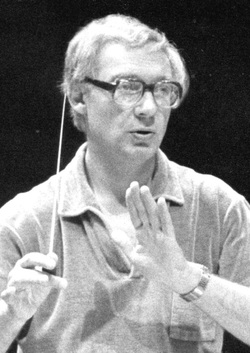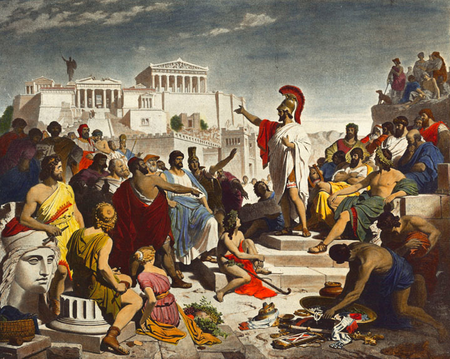 |
| John Joubert text and picture from Wikipedia |
Welcome to St Mary's choir blog
The church has both an adult and junior choir. We are affiliated to the Royal School of Church Music(RSCM). The junior choir are provided with tuition to enable them to gain their RSCM medals. The RSCM Singing Awards celebrate singers’ achievements and progress, through formal examinations at three levels; Bronze, Silver and Gold ( Bronze award is roughly equivalent to ABRSM grade 4. Similarly Silver roughly equates to grade 6 and Gold to grade 8).
The senior choir is a four part harmony choir with its main responsibility to sing at the 10am Sunday service, including an anthem.
Our choirs do not require any fees to belong to them or for any training. New members to both the senior and junior choir are always welcome whatever their standard. If you are interested in joining us please contact our Director of Music (Joanna) via the Contact Us page.
Monday, 25 December 2023
Sunday 24th December 2023 Christmas Eve
Friday, 22 December 2023
Sunday 17th December 2024 Advent 3
Jubilate Deo in B flat Charles Villiers Stanford
The Jubilate in B flat displays the composers trademark mastery of thematic structures.
The Angel Gabriel from heaven came. Sabine Baring-Gould Basque traditional arr. Edgar Pettman.
Sunday, 3 December 2023
Sunday 3rd December 2023 Advent 1
In Night's Dim Shadows Lying Words Charles Coffin Music from the Katholisches Gesangbuch Arr George Guest
Sunday, 26 November 2023
Sunday 26th November 2023 Christ The King
Ave Verum Corpus W A Mozart (K618)
Ave Verum Corpus (Hail, true body) is a setting of the Latin Hymn, in D major. It was written for Anton Stoll, a friend and church musician of St Stephen, Baden.
It was composed in 1791 whilst visiting his wife Constanze who was pregnant with their 6th child and staying at the spa Baden bei Wien. It was composed for the feast of Corpus Christi. Mozart's manuscript has only "Sotto voce" marked at the beginning with no other markings.
Wolfgang Amadeus Mozart (1756 - 1791)
Mozart was a child prodigy competent on keyboard and violin. He began composing at the age of five. He performed around Europe for royalty. At the age of 17 he was engaged as a musician at the Salzburg court but was restless and travelled looking for a better position. Whilst visiting Vienna he was dismissed from his position in Salzburg. He remained in Vienna, where he gained fame but no financial security.
He composed more than 600 works, many acknowledged as the finest in symphonies, concertante, operatic, chamber and choral music. He remains one of the best loved classical composers, whose work influenced many composers. Joseph Haydn said of Mozart "Posterity will not see such a talent again in 100 years."
 |
| W A Mozart from Wikipedia |
Thursday, 23 November 2023
Sunday 19th November 2023 Second before Advent
Benedictus in C C V Stanford
God be in my head is one of the earliest English prayers found in the Sarum Primer of 1514. It is a prayer for God's guidance. John Rutter has written a beautiful setting to these profound yet simple words.
John Rutter was born in London in 1945 and had his first musical training at Highgate School as a chorister. He studied music at Clare College, Cambridge where he wrote his first published music and had his first recording whilst still an undergraduate.
He was awarded a CBE for services to music in the 2007 Queen's New Year Honours List.
Sunday, 12 November 2023
Sunday 12 th November 2023 Remembrance Sunday
So They Gave Their Bodies Peter Aston (1938- 2013) From Pericles' Funeral Oration (Athens 431BC) translation Alfred Zimmern
Peter Aston was born in Birmingham. He studied at The Birmingham School of Music and The University of York. In 1964 he was a lecturer in music at The University York. Ten years layter he was appointed Professor of Music at The University of East Anglia and eventually Emeritus Professor of Composition. He is best known for his liturgical works although also wrote chamber works for voice and instrument, choral and orchestral works and an opera for children. He was a lay canon in Norwich Cathedral and founded the Norwich Festival of Contemporary Church Music. He founded the Tudor Consort and English Baroque Ensembles.
 |
| Peter Aston from The Morley Consort of Voices |
"So they gave their bodies to the commonwealth and received, each for his own memory, praise that will never die, and with it the grandest of all sepulchres, not that in which their mortal bones are laid, but a home in the minds of men, where their glory remains fresh to stir to speech or action as the occasion may require."
 |
| Pericles' Funeral Oration by Philipp Foltz |
Sunday, 5 November 2023
Sunday 5th November 2023 All Saints
"Give us the wings of faith" by Ernest Bullock, words Isaac Watts.
This anthem was written for All Saints' Day, the words from a hymn by Isaac Watts.
Sir Ernest Bullock (1890-1979) was not primarily a composer, but an educationalist and organist. He was born in Wigan, where he became organist at his parish church. He was then assistant organist at Leeds Parish Church in 1907. In 1908, he received his Bachelor of Music from the University of Durham, gaining his Doctor of Music in 1914. In 1912, he was assistant organist at Manchester Cathedral. After WW1 he was organist at St Michael's College, Tenbury, almost immediately moving to Exeter as cathedral organist in 1919. In 1928 he succeeded Sir Sidney Nicholson as Master of Choristers in Westminster Abbey. He provided music for the coronation of King George VI, writing most of the fanfares for that and also the coronation of Elizabeth II in 1953.
In 1941, Bullock went to Glasgow as the Gardiner Professor in Music at the university. In 1952 he became director of the Royal College of Music. He was knighted in 1951 and he retired in 1960.
Isaac Watts (1674-1748) was born in Southampton, the son of a committed religious nonconformist. His father, also Isaac was twice incarcerated for his beliefs. He received a classical education at the King Edward VI school, but was barred from attending Oxford or Cambridge universities as they were restricted to Anglicans. He went to the Dissenting Academy at Stoke Newington in 1690. He was pastor of a large independent chapel in London where he helped train preachers. However, his religious opinions were more ecumenical than was usual for a nonconformist. He promoted education and scholarship rather than preaching for a particular sect. He is famous for the writing of the words of hymns. He promoted hymn singing and his prolific hymn-writing helped to usher in a new era of English worship.
 |
| Isaac Watts, by unknown artist {Wikimedia commons] |



